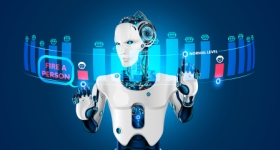
How much do you care about where you put your money? Do you just want your investments to deliver a profit, or are you concerned that they do some ‘good’ for the world? Increasingly, people want a bit of both – with millennials most likely to be keen to secure assets that focus on sustainability according to Schroders Global Investor Study.
For some investments, the ethical consideration is clear. When it comes to companies with a strong track record in human rights or with gold plated (or should that be green plated?) environmental credentials, it’s fairly straightforward to make a judgement call – whether you’re the sort of investor who wants an asset fund that reflects your world-view or you’re a digitally savvy trader using CFD providers popular in Australia and beyond to make money from the markets. But, what about the growth of AI? This technology is set to transform the way we work and interact with one another – and make the companies providing it an awful lot of money. So far so good, but what about the ethics of AI?
The World Economic Forum recently spelled out the nine ethical challenges facing the development, growth and deployment of artificial intelligence.
Those were:
- Unemployment – What will happen, for example, to truck drivers if driverless vehicles become commonplace?
- Inequality – Will society become even more unequal if the people in charge of AI technology make even more money at a time when workers lose their jobs?
- Humanity – How will our interaction with other change? Will AI fuel further ‘tech addition’?
- Stupidity – What happens if AI systems are fooled? How do we ensure system ‘learn’ from mistakes in a way that humans do?
- Racism – Can we trust AI to be unbiased? One piece of software used to predict future criminals showed a bias against black people.
- Security – How do we prevent AI from being hacked and put to use for criminal means?
- Unintended consequences – How do we stop robots acting ‘literally’, acting with the best of intentions that end up negatively?
- Singularity – Will human beings still be the most intelligent species on the planet in an AI-driven future?
- Rights – At what point do robots who can think and act for themselves deserve their own rights?
These questions and issues are the sorts of topics that will keep academics busy for a long time. The important thing to stress is that many of these issues can be overcome – and not all lead necessarily to negative consequences.
Perhaps the clearest of these centres on the labour questions. For some, it boils down to the following: are you happy to put your money into a technology that might put a lot of people out of work? Not that this is a new question… economists see the rise of AI as part of the fourth industrial revolution – and people have been concerned about the future of work at each previous point.
However, for investors who are keen to consider the ethics of their investments, these are the sorts of basic factors to weigh up. Do you trust that AI can confound the critics and improve our lives? If so, you can invest in this market without ethical conce
